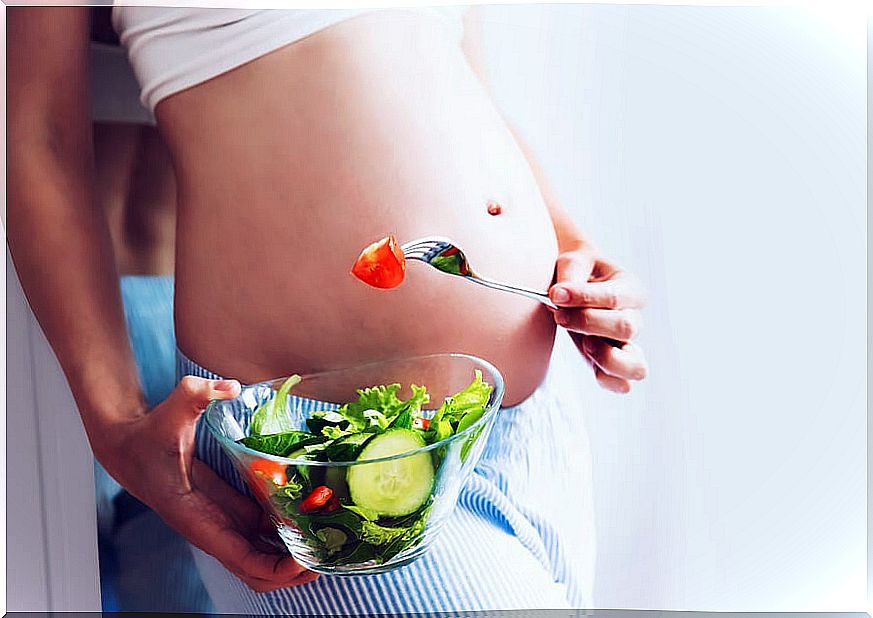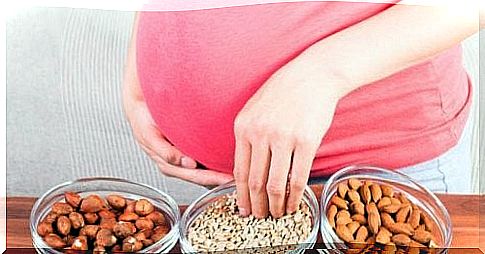The Intestinal Health Of The Pregnant Woman Influences The Brain Of The Future Baby
We have always known that pregnancy is a critical time for the development of the fetus and its health. But what was not so well known is that there were diseases that can appear later in life . These can also be related to what Mom ate and did during her pregnancy. Did you know that the intestinal health of the pregnant woman could influence the brain of the future baby?
Training the brain of the future baby is very expensive
The formation of the brain of the future baby during development generates a high metabolic cost. From the first month of gestation, neurons proliferate frantically and are located in what will be the future brain, following a perfectly drawn program.
The rate of division of neurons reaches a record 250,000 cells per minute at this stage! The brain development of the fetus represents a large part of the total energy that the mother exerts in the development of the fetus.
At the end of pregnancy, the total energy cost to form a new brain is about 40,000 kilocalories. These come to be more than half of the total expenditure of the energy cost of pregnancy. This is confirmed by research such as the one published in 1981 by the journal Progress in Lipid Research .
Consequently, even before birth, the brain of the future baby is already highly dependent on what the mother eats and does at this stage. One of the allied organs of fetal brain development could be the mother’s intestine.

Intestinal infections in the pregnant woman and the brain of the future baby
Although it remains to be confirmed, it is believed that intestinal infections during the first six months of pregnancy in mothers increase the risk of brain dysfunctions in the future baby. This is shown by studies such as the one published in 2018 by The American Journal of Maternal / Child Nursing .
If confirmed, strategies to reduce the risk of infections during pregnancy could be considered. These could focus on the control of bacteria in the gut, through controlled diets, prebiotics and probiotics (that is, foods that help maintain the intestinal flora).
Diabetes in the mother: can it affect the brain of the future baby?
Other studies such as the one published in 2018 in the journal JAMA have revealed that the development of diabetes (type I or type II) is a risk factor for autism in offspring.
The researchers conducted a study in children who were followed during the first years of life. Those who developed autism were scored and found to come from mothers who had either type I or type II diabetes during pregnancy.
The results showed that during the pregnancy of mothers with diabetes, the risk of the offspring having autism increased by 62%. However, the reasons why diabetes might increase this risk are still unknown.
Although there are unavoidable diabetes, such as type I, type II diabetes increases its incidence with poor diet and junk food.

Adequate proportion of omega fats and risk of ADHD
A study carried out by Spanish researchers and published in 2019 has shown that diet in pregnancy could influence the risk of ADHD symptoms (attention deficit hyperactivity disorder) in children from 7 years of age .
The research analyzed the ratio of omega-6 fatty acids to omega-3 fatty acids that mothers ingested during pregnancy. While both fatty acids are essential for life-long brain development and function, adequate amounts of these fats are particularly crucial during pregnancy.
Omega-6 and omega-3 must be kept in an adequate ratio (3 to 1 is advisable). Omega-6s are particularly abundant in vegetable oils. They can also be found in seeds and grains as well as cereals and meats. For its part, omega 3 can be found in fish oils and marine sources.
The results indicated that there was a correlation between omega-6 / omega-3 disproportion and the increased risk of showing ADHD symptoms from 7 years of age in children.
In this way, the researchers were able to conclude that the maternal diet during pregnancy can modulate the risk of developing long-term ADHD symptoms in the offspring.
Eat nuts in the first 3 months of pregnancy
According to research published in the European Journal of Epidemiology , eating nuts (walnuts, almonds, hazelnuts, peanuts and pine nuts) during the first 3 months of pregnancy improves attention, memory and learning in future children.
The benefits of nuts (surely also others such as cashews, Macadamia nuts, pistachios, etc.) are explained by their high content of essential fatty acids such as omega-6 and omega-3, high content of microminerals and vitamin B9 that contribute to the development of the fetus’ brain when it needs it most.
The curious thing is that the same beneficial effects were not observed in the neuropsychological development of the offspring when the mothers had consumed the nuts in abundance in the last 3 months of pregnancy.

Cesarean section is not ideal for the newborn
Historical developments and advances in cesarean delivery techniques and logistics have reduced the maternal and neonatal risks associated with the procedure, while increasing the number of pregnancies completed surgically for medically unjustifiable reasons. .
The problem that has been determined from this is that caesarean section can have consequences for the health of babies born. This is confirmed by a research published in 2013 in the journal Medical Archives .
According to this study, in children born by cesarean section, the “good” maternal bacteria are missing. These are normally found in the maternal birth canal and rectum. Meanwhile, “bad” bacteria are often present that can compromise a child’s immune system.
Meanwhile, in children born vaginally, the “good” maternal bacteria stimulate white blood cells and other components of the newborn’s immune system, which has been taken as the basis for the hypotheses that explain the evident association of morbidities and disease. cesarean delivery mentioned above.
Women are usually very careful and cautious in pregnancy to give the best of themselves to their offspring. There is no doubt that a great ally of this care lies in the bacteria that live in the intestine. Let’s take care of the guts so that they take care of us for life!









